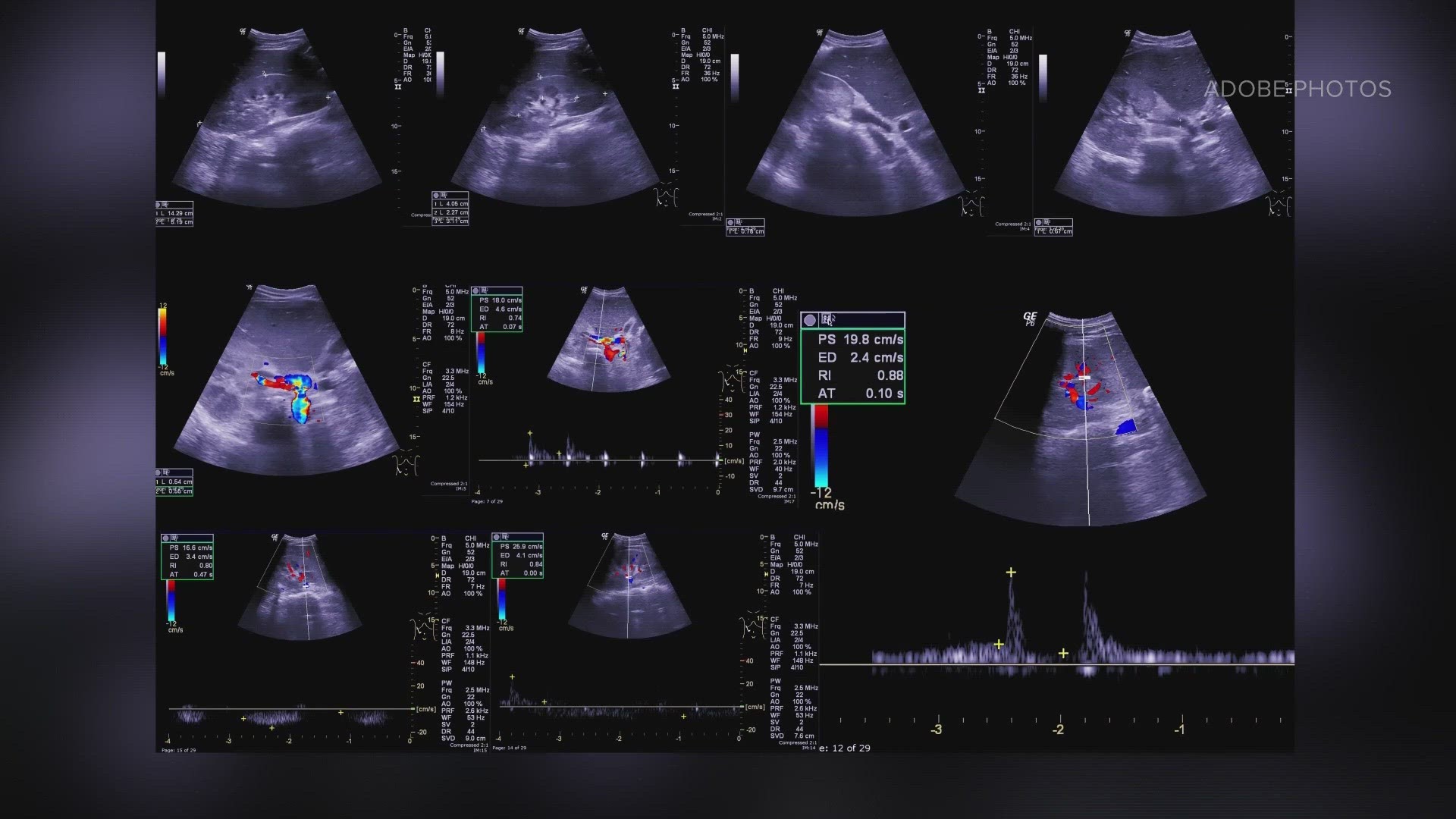SEATTLE — The typical symptoms of ovarian cancer can deceptively be passed off as "normal" leading to it being found in its later stages. It's why doctors and survivors urge women to know the warning signs.
In the spring of 2009, Drea Mizer was vacationing in Hawaii when something felt off.
"Felt really tired, had not a lot of energy, some lower back pain, and I honestly just thought 'Oh I'm dehydrated,' " Mizer told KING 5.
She brushed it off. But weeks later, her cat, Sam, made her think again.
"My cat kept jumping on me, pawing on me, and I said, man that actually hurts; pawing at the abdomen area so I felt it, and there was a really large, hard mass there," Mizer said.
That mass turned out to be ovarian cancer. She went to her doctor and received an ultrasound and a CT scan, which led to her stage-four ovarian cancer diagnosis.
Mizer was 32 years old at the time. Doctors immediately started her on aggressive treatment.
"I said, I'm in you know, let's do it. If you're not giving up on me, I'm absolutely in for the journey," Mizer said.
Mizer ultimately beat her cancer but others haven't been as lucky.
"Unfortunately for ovarian cancer, many of our patients do die of their disease," said Dr. Elizabeth Swisher, who heads the Division of Gynecologic Oncology at UW Medicine and serves as medical director at the Breast and Ovarian Cancer Prevention Program at Fred Hutch Cancer Center.
Swisher said ovarian cancer is the fifth-leading killer of women by cancer in the U.S.
"It's not the silent killer that we previously used to call it. It's just that people's symptoms are ignored, either by the individual themselves or by their physicians," Swisher said.
The typical symptoms can include bloating, getting full fast after eating, pelvic pain, and frequent urination.
Currently, screening is limited to a CA-125 blood test or a transvaginal ultrasound. Still, even ultrasound can be limiting in scope, notably since some ovarian cancers are first detected in the fallopian tubes, according to Swisher.
"If we're ultrasounding the ovary, but the cancer arose in the fallopian tube, then we've already missed the boat," Swisher said.
Genetic testing can also detect the BRCA 1 or 2 gene mutation, which can be markers for ovarian and breast cancers. Swisher said only about 20 percent of ovarian cancer is hereditary so knowing the symptoms, is key.
Drea Mizer agrees.
"Ultimately just really knowing your body and knowing what normal feels like. As soon as something is not normal for you, if it's persistent, if it's progressive for a few days, really be your own advocate and get it checked out," Mizer said.
The Rivkin Center, a research and educational nonprofit focused on ovarian and breast cancer, is holding its SummeRun & Walk to raise funding for ovarian cancer research on July 16.
The center, started by retired Seattle oncologist Dr. Saul Rivkin, is celebrating its 30th anniversary. The nonprofit organization has invested almost $16 million in ovarian cancer research worldwide.
The 5k run and walk is happening Sunday, July 16, at Seward Park in Seattle. The run and walk begin at 9 a.m. and check-in starts at 7 a.m.
For more information, visit rivkin.org/events/rivkin-summerun-walk.

